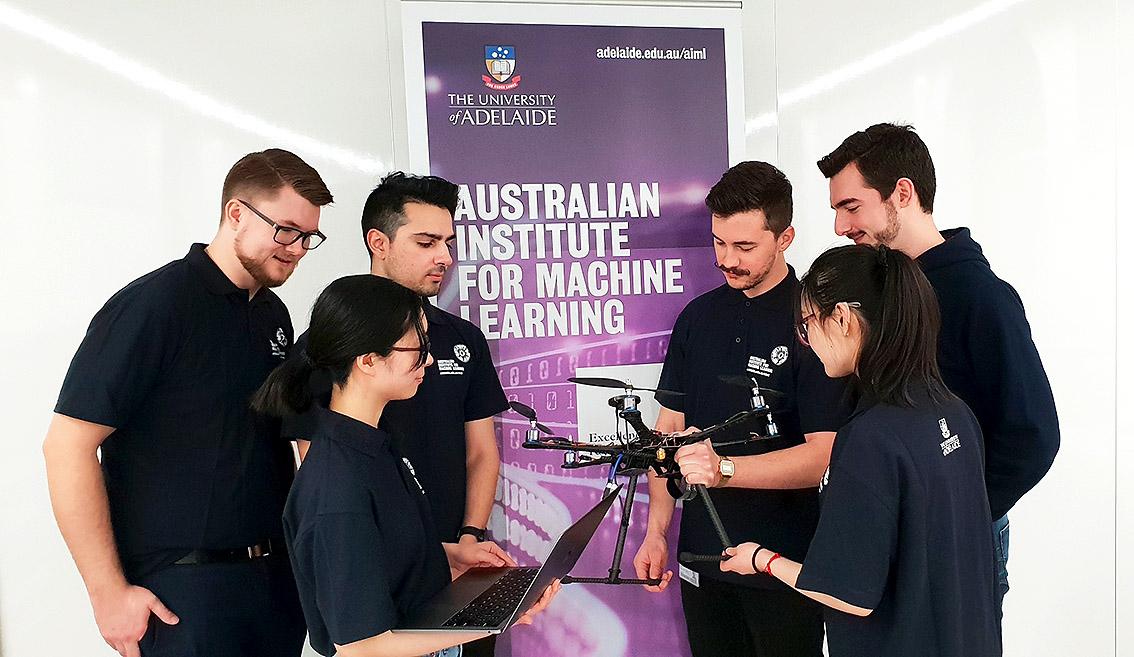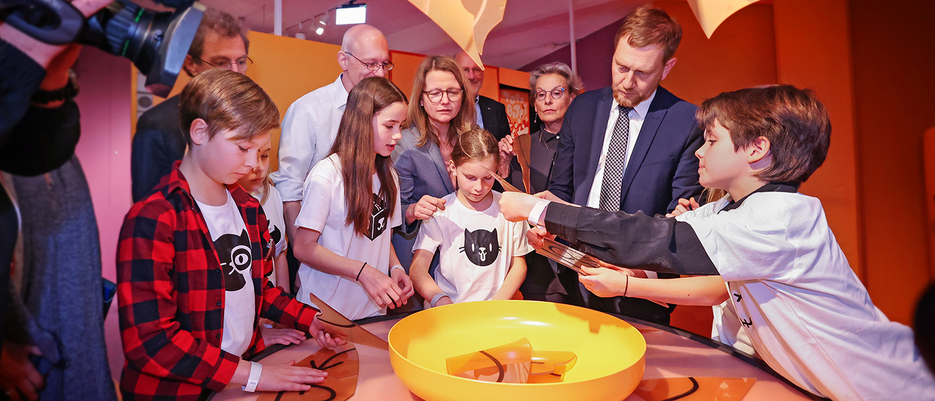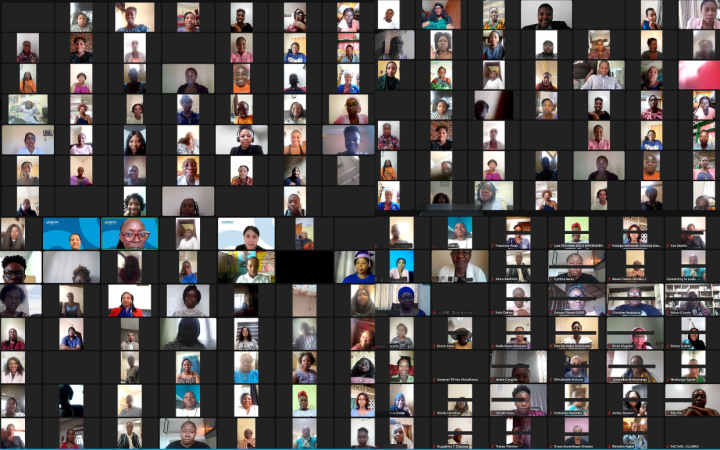
Australia’s position as one of the world leaders in artificial intelligence (AI) and machine learning will be further boosted thanks to $20 million announced in the Federal Budget towards a new national centre, to be based at the University of Adelaide.
The Centre for Augmented Reasoning is an investment by the Federal Government in people and research to make computers better at interacting with humans, so that all technology might be easier and safer to use.
“The new centre will be a major boost to the University of Adelaide’s capabilities, and will create new jobs in research, and opportunities for students. It will cement South Australia’s position as the nation’s lead state for AI research and innovation, and stimulate a new generation of high-tech businesses and jobs here in the state.”Professor Mike Brooks
The new centre builds on the expertise of the internationally regarded Australian Institute for Machine Learning (AIML) at the University of Adelaide, jointly established with the South Australian Government and based in Adelaide’s Lot Fourteen innovation precinct.
Comments from Professor Mike Brooks, Interim Vice-Chancellor, University of Adelaide:
“The $20 million announced in this week’s Federal Budget is a very exciting development, representing seed investment in our new centre. This will be a solid foundation for industry and government to build on, to ensure Australia captures the full benefits from the artificial intelligence (AI) revolution.
“The new centre will be a major boost to the University of Adelaide’s capabilities, and will create new jobs in research, and opportunities for students. It will cement South Australia’s position as the nation’s lead state for AI research and innovation, and stimulate a new generation of high-tech businesses and jobs here in the state.
“I thank Senator Rex Patrick for his ongoing advocacy that has contributed to securing this funding, which is in the best interests of the state and the nation, and to the Federal Government for its willingness to invest in the future of this critical field of research.”
Comments from Professor Anton van den Hengel, Director of the Centre for Augmented Reasoning, University of Adelaide:
“The University of Adelaide is already helping Australian businesses to adapt and to integrate AI in their products and businesses, including in film animation, medical diagnostics, manufacturing, food quality assessment, plant breeding, and mining. Our new Centre for Augmented Reasoning will help Australia push its way to the front of global innovation, building on our advantage of being one of the first economies to emerge from COVID-19 lockdown.
“Our expertise and tools are uniquely home-grown, and designed to serve Australia’s economy, workplaces and society. The centre will help ensure Australia remains competitive with other nations who are investing heavily in AI and machine learning, including China, USA, South Korea, Singapore, the UK and Japan.
“The Centre for Augmented Reasoning will help to deliver the national AI Roadmap prepared by Data 61 and also supports a range of industry strategies in agriculture, mining, forestry, space and cyber security.
“This will be a national centre and I look forward to working with my colleagues around Australia in developing the next version of AI that makes technology easier for everyone to use.”
Comments from the Hon. Dan Tehan, Minister for Education:
“The new centre is an important part of the Morrison Government’s $1 billion Budget investment in research. This will be critical for Australia’s COVID-19 economic recovery, generating jobs of the future and establishing Australia as a 21st century economy.
“The Morrison Government has made this investment to ensure Australia captures the benefits of the artificial intelligence revolution. This new research centre will support Australian industry, create jobs and economic growth, and improve the quality of life of all Australians.”
Comments from the Hon. Steven Marshall, Premier of South Australia:
“This new centre will directly support the South Australian Government’s strategy to establish Lot Fourteen as an advanced technology innovation hub, and will help to underpin the 21st century economy in this state.
“The centre complements the establishment of other recent initiatives, agencies and facilities on Lot Fourteen, such as the Australian Space Agency, the Australian Cyber Security Centre, Stone & Chalk, Amazon Research Centre, and Accenture.”
Comments from Senator Rex Patrick, Senator for South Australia:
“I am very excited about the new Centre for Augmented Reasoning, which will be a major drawcard for the smartest young minds in the state to stay here in SA, and will have a particular focus on increasing female participation in this exciting and dynamic research field.
“This is something I have been advocating for since the Senate inquiry into the Future of Work and Workers. I am pleased the Federal Government has listened to my calls.”
What is augmented reasoning?
Augmented reasoning is a new and emerging form of artificial intelligence (AI) that combines an advanced ability to learn from data (using traditional machine learning) with an ability to reason.
“Augmented reasoning gives machines an ability to solve some of the current frustrations with computers and technology that everyone experiences,” says Professor Anton van den Hengel.
“One of the frustrations of using computers today is that we all need to learn how to speak ‘computer’ to use them effectively. The goal of the Centre for Augmented Reasoning is to make computers more capable of understanding us, our instructions and needs, through more natural conversation.
“We want to enable machines to be able to discover new things in an ongoing partnership with humans, to understand our intent, and explain their actions.
“This has the potential to more easily uncover inbuilt biases, gives decision makers more confidence in recommendations, and makes AI more flexible and lower cost to use.
“Augmented reasoning will reduce the need for structured interfaces between humans and machines – such as keyboards, drop down menus and command lines – and will enable machines and humans to interact in ways that makes more sense to us all.
“The applications of this field of research are only limited by our imaginations,” he says.








